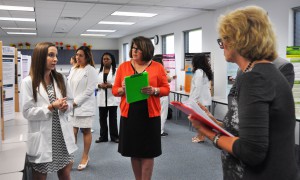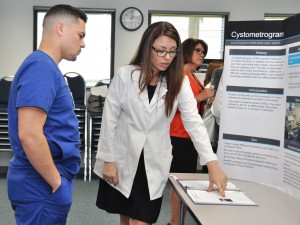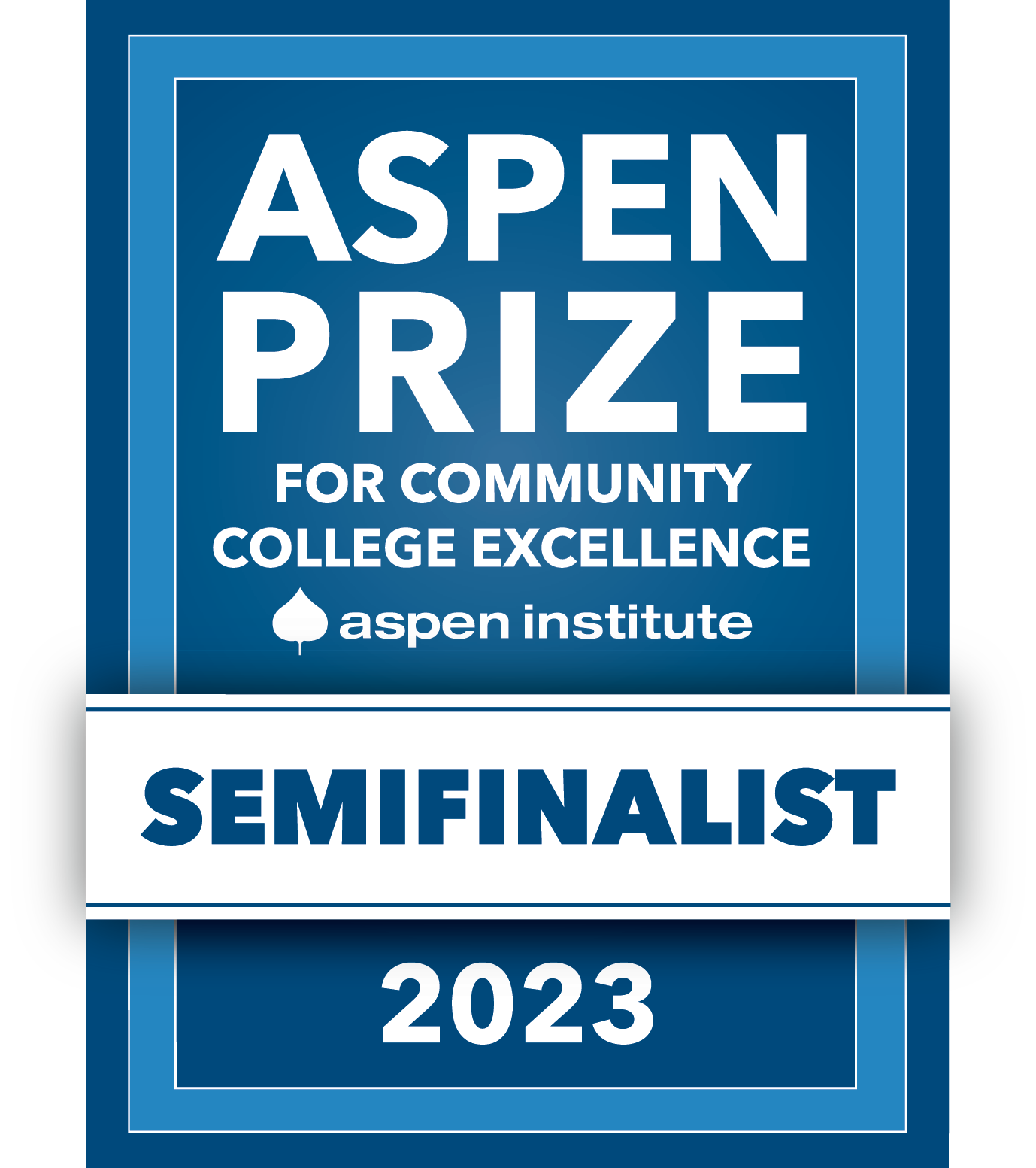- Welcome
- Campus Maps
- History
- Mission Statement
- Accreditation
- Administration
- Employment
- Human Resources Employment Process FAQ
- Position Vacancies
- Salary Schedule (PDF)
- Employee Benefits
- Paid Holidays
- Employee Handbook (PDF)
- Faculty Handbook (PDF)
- BENCOR Special Pay Plan (PDF)
- Social Security Collection and Usage
- Affordable Care Act Notice (PDF)
- Social Security Disclosure Summary (PDF)
- Tobacco-Free College
- Drug-Free Workplace & Campuses
- Technology Usage Acknowledgement (PDF)
- Employee Safety Manual (PDF)
- SFSC’s Annual Security and Fire Safety Report (PDF)
- Calendars
- News
- Social Media
- Honoring Our Retirees
- Celebrating Our Trustees
AVON PARK, Fla.–April 29, 2016–Before South Florida State College’s Bachelor of Science in Nursing (BSN) program students can don their caps for the May 5 Commencement ceremony, they had to wrap up their capstone projects.
At lunchtime on April 28, the students who comprise the inaugural graduating class of the SFSC BSN program presented their capstone projects to fellow students, faculty, and most important, a team of graders.
SFSC BSN students must complete a project-based learning assignment in their final semester —or capstone— that draws on nursing research to demonstrate their mastery of the curriculum.
“We were absolutely amazed and so proud of what our first class of BSN students have accomplished, especially here with their capstone projects,” said Dr. Michele Heston, director, Nursing Education.
The nursing students are in the last week of a two-year program that awards BSN degrees to registered nurses who have completed an associate degree nursing program.
As the noon-hour start of the presentations drew near, the students were getting into their white lab coats and making sure the poster boards holding their presentations were set just right.
Dr. Heston led a three-member team of graders that approached students standing by their posters to pepper them with questions. Also, grading the students were Dr. Lisa McConnell and Kathleen Cappo, and instructor and professor of nursing respectively.
The first student coming under the microscope was Argelis Buck, whose project centered on improving the quality of care for dialysis patients through better training of hospital staff.
Buck was at the ready, reeling off details of how she conceived the project, placed it through a test run, and measured the outcomes she had achieved.
Over the course of the next three hours, Dr. Heston and her team made their way through 27 presentations. From preventing falls among the elderly to medication compliance to improving vascular access among dialysis patients, the presentations cut across the broad scope of patient care.
“Our students, through these presentations, demonstrated that nursing is all about taking care of patients and their families,” Dr. Heston said. “We are thrilled over the impact that our bachelor-level nurses are going to have on our community, and the patients and families they will serve.”
SFSC launched its BSN program in the fall of 2014. The two-year program gives registered nurses who have already earned an associate degree the opportunity to earn a BSN.
Dr. Heston said SFSC designed the curriculum so that students would have on-campus classes only one each week, giving them time to work at their profession.
After her turn at presenting her capstone to the graders came to end, Jessica Current breathed a sigh of relief. “We have only one week to go before walking across the stage with our caps and gowns, so we are both excited and ready for a break.”
Current earned her Associate in Science (AS) degree in nursing from SFSC in 2008. She has worked as a registered nurse in Highlands County since graduating and seized the chance to earn her BSN when the inaugural class opened for enrollment.
“Of course, I’ve been a working RN for nearly eight years now,” Current said. “But having a bachelor’s degree now opens the door for me to advance my career by earning a master’s degree, something I couldn’t do with just an associate degree.”
The capstone project is the students’ final hurdle on the path to attaining their BSN degrees. Current, whose project dealt with a procedure to better diagnose urinary incontinence, is already eyeing a master’s degree program that starts this fall.
First, though, she plans to relax once she has her degree in hand. “I think I am going to take a week off and watch TV,” Current said. “It’s been a busy two years.”
To learn more about the BSN, occupational certificate practical nursing, and nursing associate degree, including a transition program from practical nursing to registered nursing, contact the SFSC Advising and Counseling Center at 863-784-7131. Or visit the SFSC website at www.southflorida.edu.






